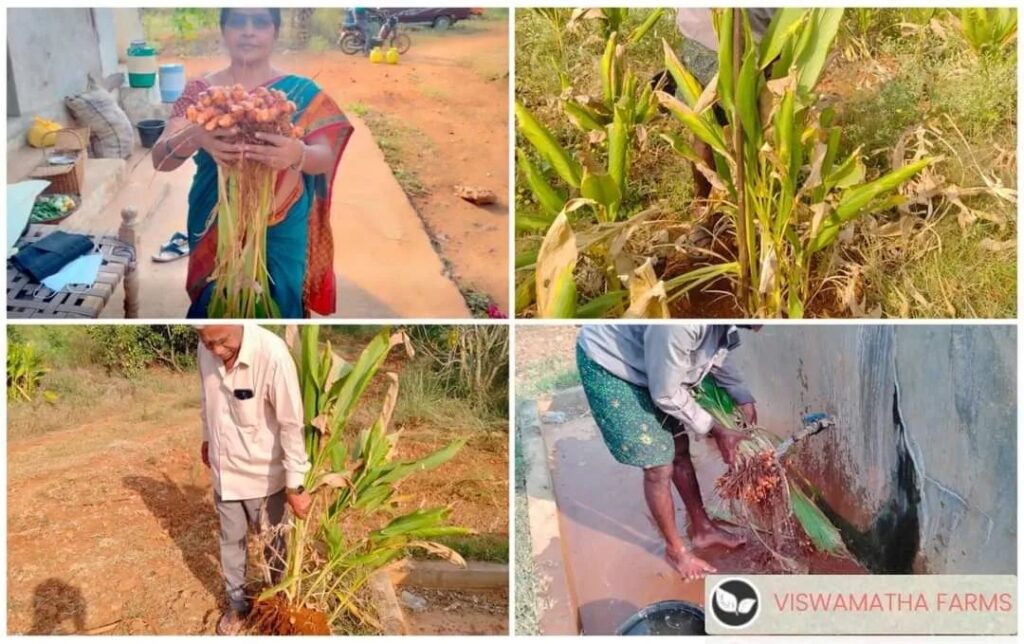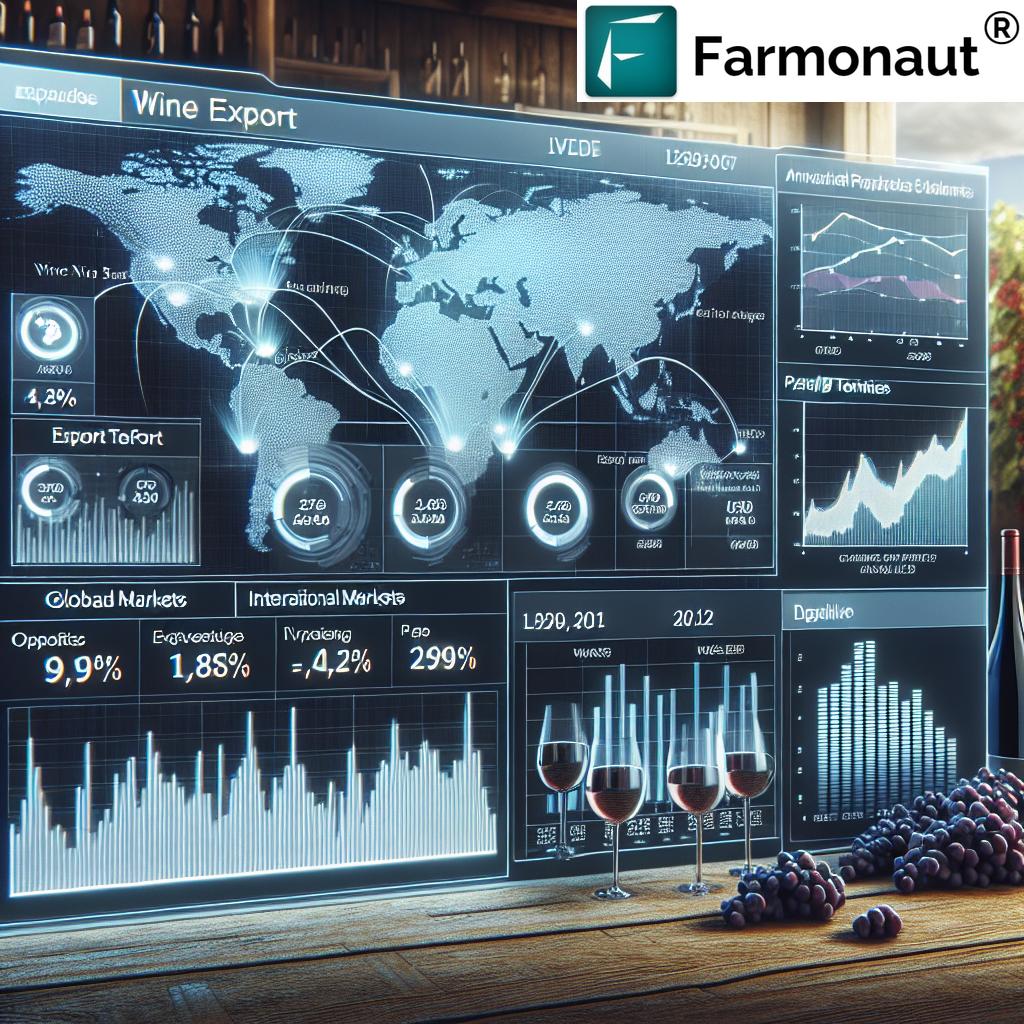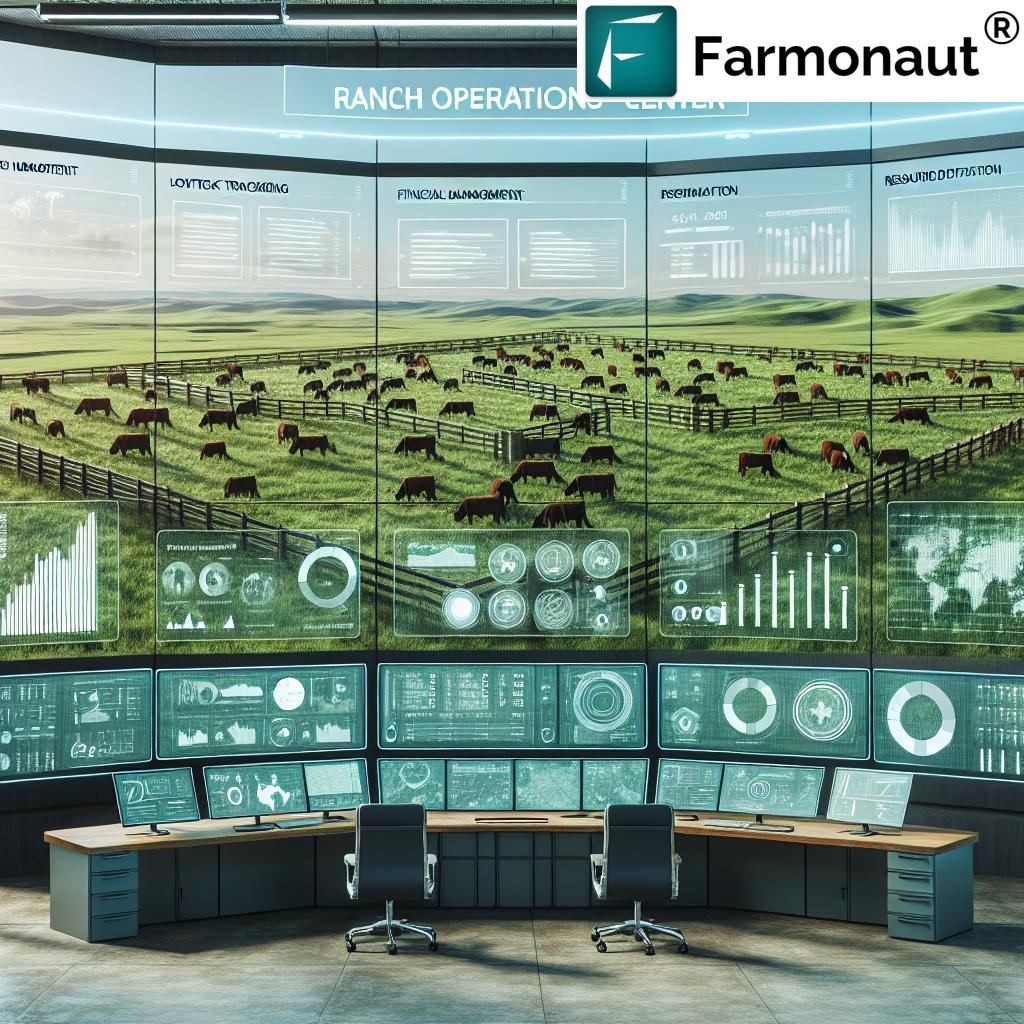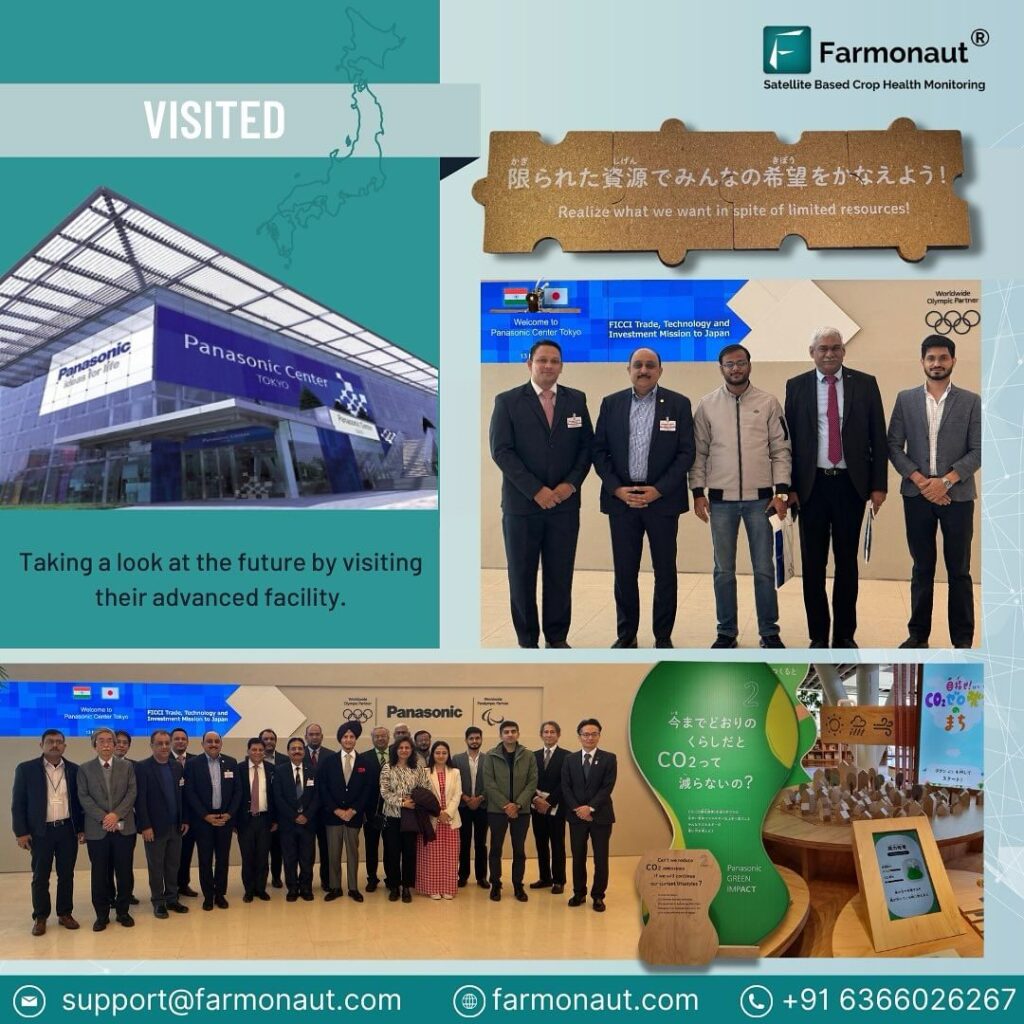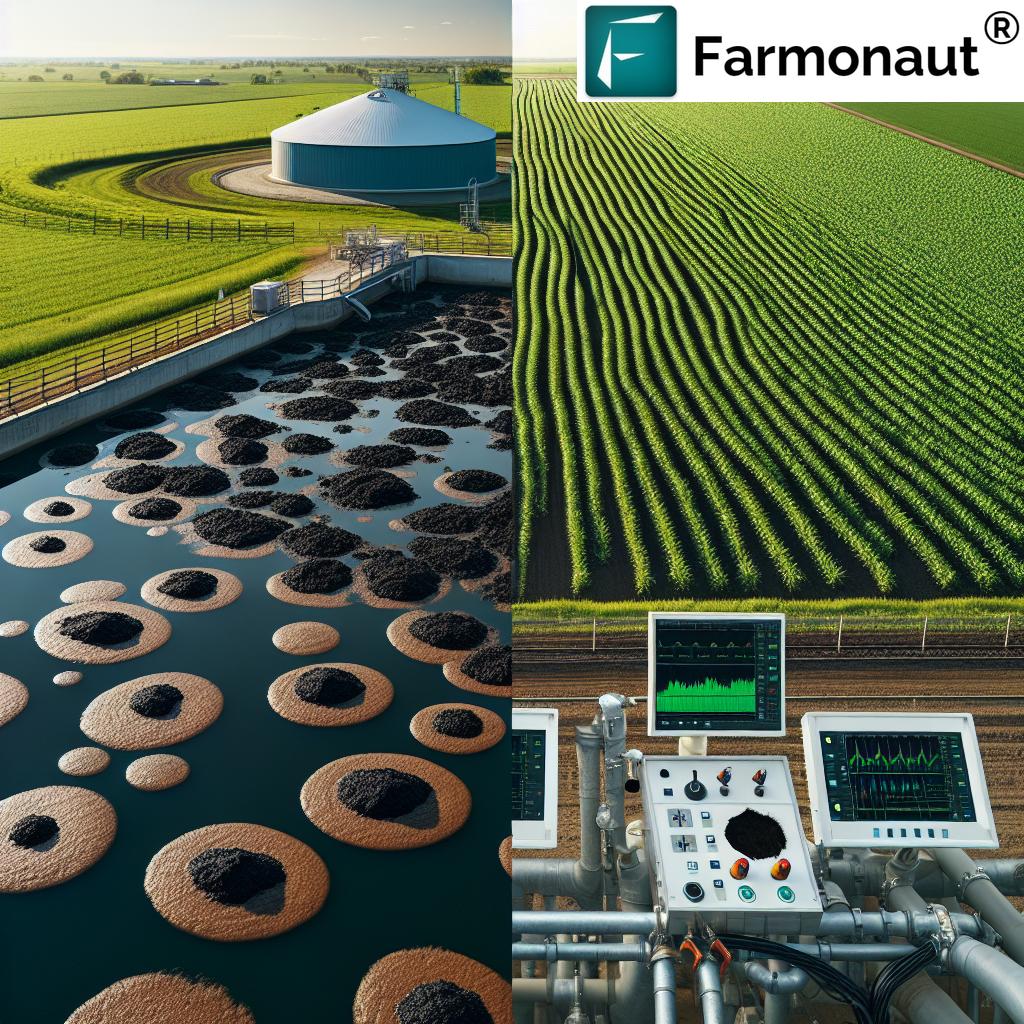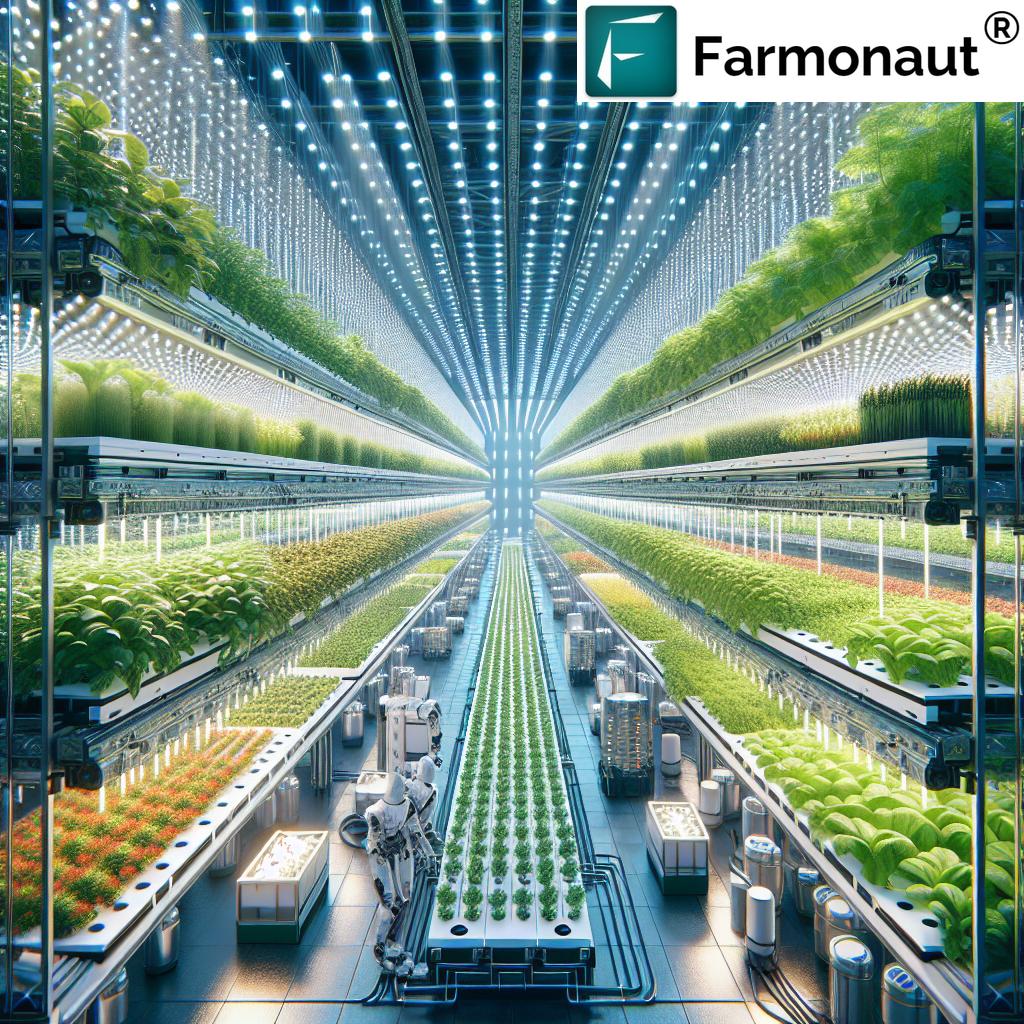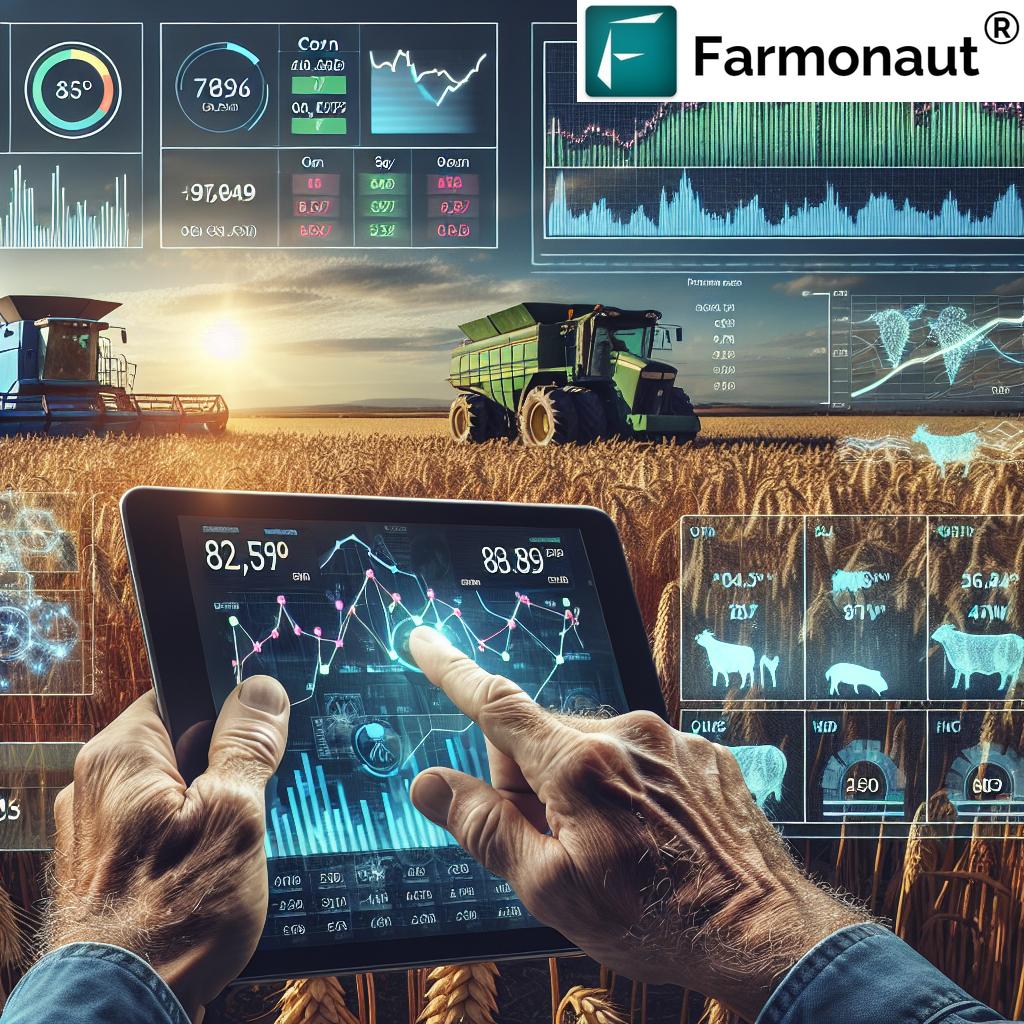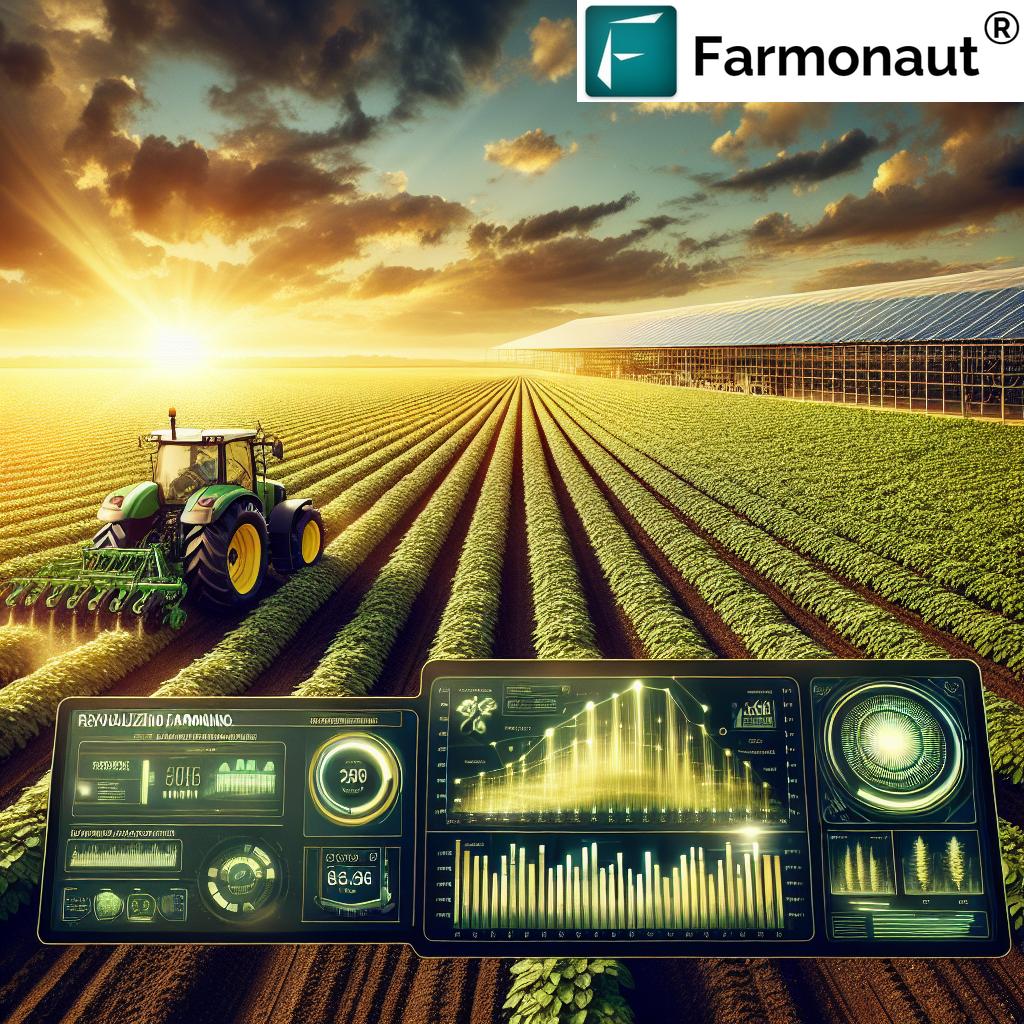Revolutionizing Agricultural Quality Assurance: How Farmonaut’s Technology Transforms Supply Chain Transparency
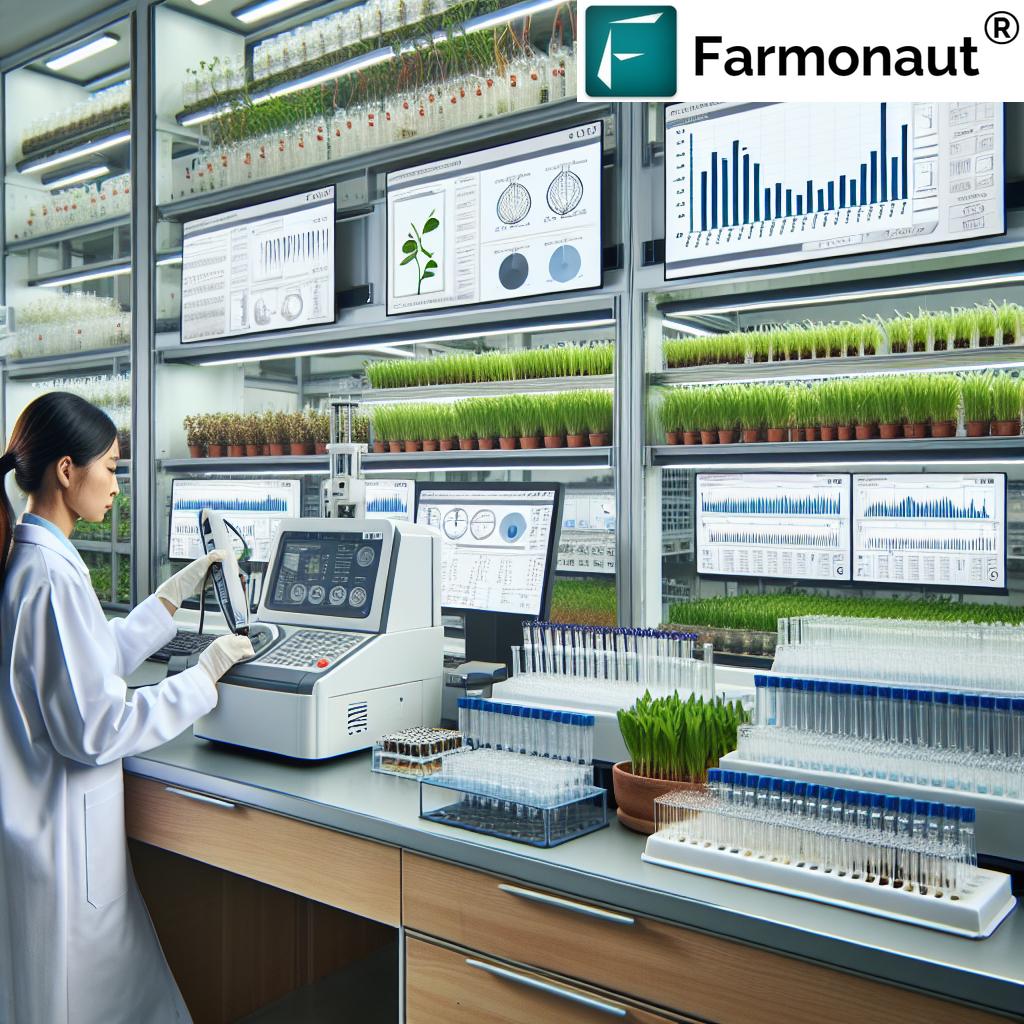
“Farmonaut’s QMS technology can improve raw ingredient tracking by up to 95% in agricultural supply chains.”
In the ever-evolving landscape of modern agriculture, quality assurance and supply chain transparency have become paramount concerns for businesses and consumers alike. As we navigate the complexities of global food production and distribution, the need for robust quality management systems (QMS) has never been more critical. At Farmonaut, we are at the forefront of this agricultural revolution, leveraging cutting-edge technology to transform how the industry approaches quality control and transparency.
Our mission is to make precision agriculture not only accessible but also affordable for farmers worldwide. By integrating innovative satellite-based farm management solutions with data-driven insights, we are reshaping traditional farming practices and setting new standards for agricultural quality assurance. In this comprehensive exploration, we will delve into the multifaceted world of agricultural QMS, examining how advanced technologies like spectroscopy and chromatography are revolutionizing product quality testing, ensuring regulatory compliance, and meeting the ever-growing expectations of consumers.
The Critical Role of Quality Management Systems in Modern Agriculture
Quality Management Systems (QMS) serve as the backbone of agricultural businesses striving for excellence in today’s competitive marketplace. These systems encompass a wide range of processes, procedures, and technologies designed to ensure that products meet or exceed quality standards consistently. In the context of agriculture, QMS plays a crucial role in:
- Enhancing product safety and quality
- Ensuring regulatory compliance
- Improving traceability throughout the supply chain
- Optimizing resource utilization
- Building consumer trust and brand reputation
By implementing a robust QMS, agricultural businesses can streamline their operations, reduce waste, and make more informed decisions based on real-time data and analytics. This systematic approach to quality management is essential for meeting the growing demand for transparency in the global food supply chain.
Leveraging Advanced Technologies for Product Quality Testing
At the heart of modern agricultural quality assurance lies a suite of advanced technologies that enable precise and efficient product testing. Two key technologies that have revolutionized this field are spectroscopy and chromatography.
Spectroscopy in Agricultural Quality Control
Spectroscopy is a powerful analytical technique that measures how matter interacts with electromagnetic radiation. In agriculture, various forms of spectroscopy are used to assess the quality and composition of crops, soil, and agricultural products. Some applications include:
- Near-Infrared (NIR) Spectroscopy: Used for rapid, non-destructive analysis of moisture content, protein levels, and other chemical properties in grains and produce.
- Raman Spectroscopy: Helps detect adulterants and contaminants in food products.
- UV-Visible Spectroscopy: Utilized for analyzing pigments, antioxidants, and other compounds in fruits and vegetables.
These spectroscopic techniques allow for quick, accurate, and often real-time analysis of agricultural products, enabling farmers and producers to make timely decisions about harvesting, processing, and quality control.
Chromatography: Unraveling Complex Agricultural Compositions
Chromatography is another indispensable tool in the agricultural quality assurance arsenal. This technique separates and analyzes complex mixtures, providing detailed information about the composition of agricultural products. Key chromatographic methods in agriculture include:
- High-Performance Liquid Chromatography (HPLC): Used to analyze pesticide residues, vitamins, and other organic compounds in food products.
- Gas Chromatography (GC): Ideal for detecting volatile compounds, flavor components, and contaminants in agricultural samples.
- Ion Chromatography: Employed to measure inorganic ions and organic acids in soil and water samples.
By utilizing these advanced analytical techniques, agricultural businesses can ensure the safety, quality, and authenticity of their products, meeting rigorous regulatory standards and consumer expectations.
Farmonaut’s Innovative Approach to Agricultural Quality Assurance
At Farmonaut, we have developed a comprehensive suite of tools that leverage satellite technology, artificial intelligence (AI), and blockchain to address the complex challenges of agricultural quality assurance. Our platform offers:
- Satellite-Based Crop Health Monitoring: Using multispectral satellite imagery, we provide real-time insights into vegetation health, soil moisture levels, and other critical metrics. This data empowers farmers to make informed decisions about irrigation, fertilizer usage, and pest management, ultimately optimizing crop yields and quality.
- Jeevn AI Advisory System: Our AI-driven personalized farm advisory tool delivers real-time insights, weather forecasts, and expert crop management strategies. By analyzing satellite data and other inputs, Jeevn AI generates customized advice that helps improve farm productivity and efficiency.
- Blockchain-Based Product Traceability: We integrate blockchain technology to enable end-to-end traceability solutions for various agricultural industries. This ensures that every stage of a product’s journey, from farm to consumer, is transparent and secure, enhancing trust and reducing fraud in supply chains.
Our innovative approach not only enhances quality assurance but also promotes sustainability and efficiency in agricultural practices. By providing farmers and agribusinesses with comprehensive, data-driven insights, we enable them to maintain high standards throughout the agricultural supply chain, from sourcing raw ingredients to manufacturing final products.
Streamlining Decision-Making Processes in Agriculture
One of the key benefits of implementing a robust QMS powered by advanced technologies is the ability to streamline decision-making processes across the agricultural supply chain. By leveraging real-time data and analytics, businesses can:
- Optimize resource allocation based on accurate crop health assessments
- Predict and mitigate potential quality issues before they escalate
- Make informed decisions about harvesting times to ensure optimal product quality
- Adjust production processes in real-time based on quality metrics
- Enhance inventory management and reduce waste
This data-driven approach to decision-making not only improves overall product quality but also contributes to more sustainable and efficient agricultural practices.
Enhancing Raw Ingredient Tracking and Supply Chain Visibility
In today’s complex global supply chains, tracking raw ingredients from source to final product is crucial for ensuring quality, safety, and regulatory compliance. Farmonaut’s blockchain-based traceability solutions offer unprecedented visibility into the agricultural supply chain, enabling:
- Real-time tracking of ingredients from farm to factory
- Verification of product origin and authenticity
- Rapid identification and isolation of potential quality issues
- Enhanced recall capabilities in case of safety concerns
- Improved transparency for consumers and regulatory bodies
By implementing these advanced tracking systems, agricultural businesses can not only improve their quality assurance processes but also build stronger relationships with consumers based on trust and transparency.
“Advanced spectroscopy and chromatography techniques used by Farmonaut can detect over 1000 different quality parameters in agricultural products.”
Improving Product Development through Data-Driven Insights
Quality management systems powered by advanced technologies not only ensure the quality of existing products but also play a crucial role in driving innovation and product development. By analyzing data collected throughout the agricultural supply chain, businesses can:
- Identify trends and patterns in consumer preferences
- Develop new products tailored to specific market demands
- Optimize existing product formulations for improved quality and consistency
- Reduce time-to-market for new agricultural products
- Enhance the nutritional value and safety of food products
This data-driven approach to product development ensures that agricultural businesses remain competitive and responsive to changing market dynamics while maintaining high quality standards.
Maintaining High Standards Throughout the Agricultural Supply Chain
Ensuring consistent quality from farm to table is a complex challenge that requires a holistic approach to quality management. Farmonaut’s integrated platform addresses this challenge by:
- Providing real-time monitoring of crop health and environmental conditions
- Offering predictive analytics to anticipate and prevent quality issues
- Enabling seamless communication and data sharing among supply chain partners
- Implementing rigorous quality control measures at every stage of production
- Facilitating compliance with international quality standards and regulations
By maintaining high standards throughout the supply chain, agricultural businesses can not only meet regulatory requirements but also exceed consumer expectations for quality and safety.
The Latest Trends in Sustainable Agricultural Growth
As the global population continues to grow and climate change presents new challenges, sustainable agricultural practices have become more important than ever. Some of the key trends shaping the future of sustainable agriculture include:
- Precision agriculture techniques that optimize resource use
- Regenerative farming practices that improve soil health and biodiversity
- Vertical farming and urban agriculture solutions
- Adoption of drought-resistant and climate-resilient crop varieties
- Integration of renewable energy sources in agricultural operations
Farmonaut’s technology plays a crucial role in supporting these sustainable practices by providing farmers with the data and insights needed to make environmentally conscious decisions while maintaining high quality standards.
Explore Farmonaut’s API for advanced agricultural insights
Meeting the Growing Demand for Transparency in the Marketplace
Today’s consumers are increasingly concerned about the origin, quality, and environmental impact of the food they consume. This growing demand for transparency presents both challenges and opportunities for agricultural businesses. To meet these expectations, companies must:
- Implement comprehensive traceability systems
- Provide clear and accessible information about product origins and production methods
- Demonstrate commitment to sustainable and ethical farming practices
- Engage in open communication with consumers about quality assurance measures
- Leverage technology to provide real-time information about product quality and safety
By embracing transparency and leveraging advanced QMS technologies, agricultural businesses can build trust with consumers and differentiate themselves in a competitive marketplace.
Building Trust with Customers through Quality Assurance
In an era of increasing consumer awareness and scrutiny, building and maintaining trust is essential for long-term success in the agricultural industry. Robust quality assurance measures play a crucial role in fostering this trust by:
- Ensuring consistent product quality and safety
- Providing transparency throughout the supply chain
- Demonstrating commitment to ethical and sustainable practices
- Responding promptly and effectively to quality concerns
- Engaging in open dialogue with consumers about quality assurance processes
By prioritizing quality assurance and leveraging advanced technologies like those offered by Farmonaut, agricultural businesses can build strong, lasting relationships with their customers based on trust and shared values.
Optimizing Quality Control Measures in Agriculture
Effective quality control is essential for maintaining high standards in agricultural production. To optimize quality control measures, businesses should:
- Implement real-time monitoring systems for critical quality parameters
- Utilize statistical process control techniques to identify and address quality variations
- Conduct regular audits and assessments of quality management processes
- Invest in training and development programs for quality control personnel
- Leverage data analytics to identify trends and opportunities for improvement
By continuously refining and optimizing quality control measures, agricultural businesses can ensure consistent product quality while improving efficiency and reducing waste.
Access Farmonaut’s API Developer Docs for in-depth integration guidance
Fostering Long-Term Partnerships in the Global Agricultural Landscape
In today’s interconnected global agricultural landscape, fostering strong partnerships is essential for success. Quality assurance plays a crucial role in building and maintaining these partnerships by:
- Establishing clear quality standards and expectations
- Facilitating seamless communication and data sharing among partners
- Enabling collaborative problem-solving to address quality challenges
- Promoting knowledge sharing and best practices across the supply chain
- Building trust through consistent quality and transparency
By leveraging advanced QMS technologies and prioritizing quality assurance, agricultural businesses can create robust, mutually beneficial partnerships that drive innovation and growth in the industry.
The Future of Agricultural Quality Assurance: Emerging Technologies and Trends
As we look to the future, several emerging technologies and trends are poised to further revolutionize agricultural quality assurance:
- Internet of Things (IoT) sensors for real-time quality monitoring
- Artificial Intelligence and Machine Learning for predictive quality analytics
- Blockchain technology for enhanced traceability and transparency
- Gene editing techniques for developing crops with improved quality traits
- Advanced imaging technologies for non-destructive quality assessment
At Farmonaut, we are committed to staying at the forefront of these technological advancements, continuously innovating to provide cutting-edge solutions for agricultural quality assurance.
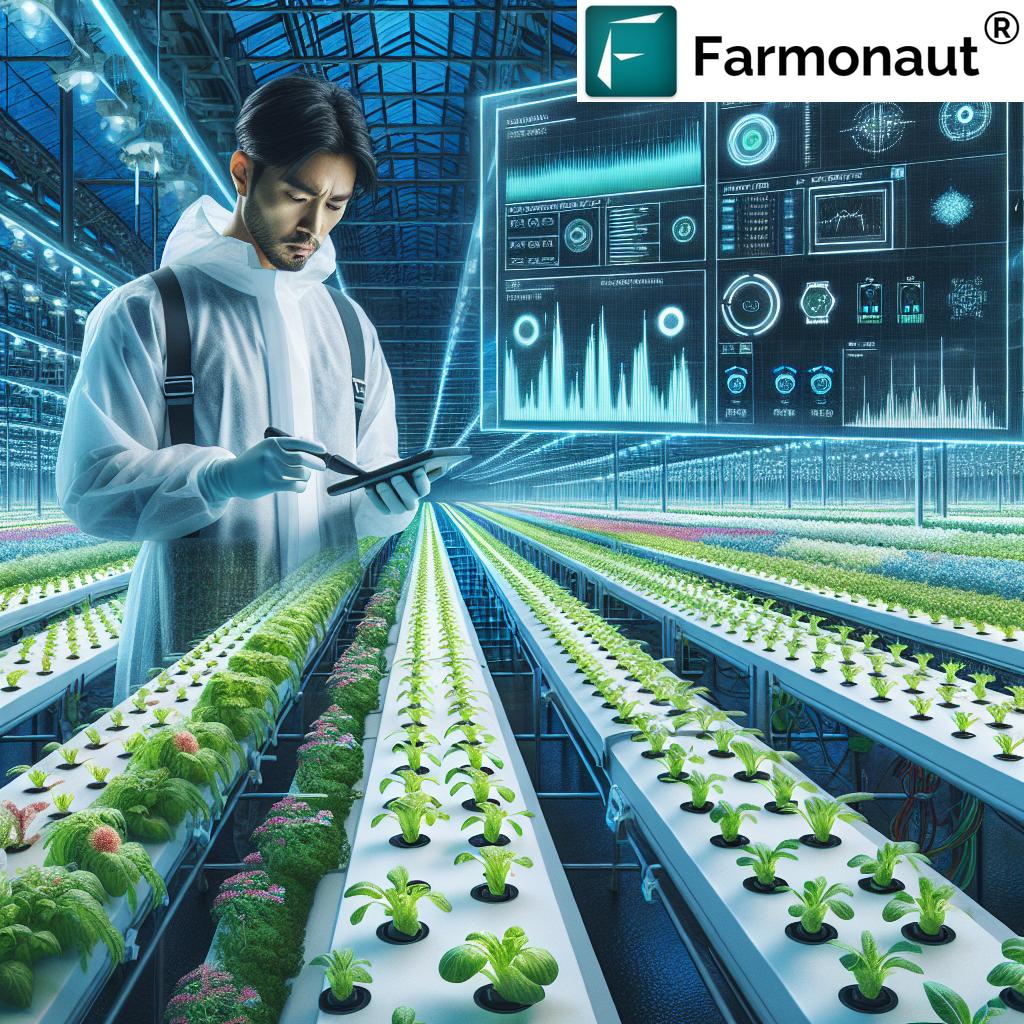
Comparison of Quality Assurance Technologies in Agriculture
| Technology | Primary Application in Agriculture | Key Benefits for Quality Assurance | Impact on Supply Chain Transparency | Estimated Implementation Cost |
|---|---|---|---|---|
| Spectroscopy | Non-destructive analysis of crop composition | Rapid assessment of nutrient content and quality parameters | Enables real-time quality checks throughout the supply chain | Medium |
| Chromatography | Detection of contaminants and analysis of complex mixtures | Precise identification of chemical components and impurities | Enhances product safety verification and traceability | High |
| Satellite Imagery (Farmonaut) | Large-scale crop health monitoring and yield prediction | Early detection of crop stress and quality issues | Provides comprehensive field-to-fork visibility | Low to Medium |
| Blockchain (Farmonaut) | Supply chain traceability and data management | Immutable record-keeping and enhanced accountability | Offers end-to-end transparency and authenticity verification | Medium |
| AI and Machine Learning | Predictive analytics for crop management and quality control | Optimized decision-making and proactive quality management | Improves forecasting and risk management in the supply chain | Medium to High |
Frequently Asked Questions (FAQ)
- What is the role of QMS in agricultural quality assurance?
QMS plays a crucial role in ensuring consistent product quality, regulatory compliance, and supply chain transparency in agriculture. It helps businesses streamline operations, reduce waste, and make data-driven decisions. - How does Farmonaut’s technology improve agricultural supply chain transparency?
Farmonaut uses satellite imagery, AI, and blockchain technology to provide real-time crop monitoring, traceability solutions, and data-driven insights, enhancing visibility and transparency throughout the agricultural supply chain. - What are the benefits of implementing advanced quality control technologies in agriculture?
Advanced quality control technologies enable rapid, accurate assessment of product quality, optimize resource use, improve decision-making, and help meet regulatory standards and consumer expectations. - How can agricultural businesses adapt to meet growing demands for transparency?
Businesses can adapt by implementing comprehensive traceability systems, providing clear information about product origins, demonstrating commitment to sustainable practices, and leveraging technology for real-time quality information sharing. - What emerging technologies are shaping the future of agricultural quality assurance?
Emerging technologies include IoT sensors, AI and machine learning for predictive analytics, blockchain for enhanced traceability, gene editing for improved crop traits, and advanced imaging technologies for non-destructive quality assessment.
Conclusion: Embracing the Future of Agricultural Quality Assurance
As we’ve explored throughout this comprehensive overview, the landscape of agricultural quality assurance is rapidly evolving, driven by technological advancements and changing consumer expectations. At Farmonaut, we are proud to be at the forefront of this revolution, providing innovative solutions that empower farmers and agricultural businesses to meet the challenges of the 21st century.
By leveraging satellite technology, AI, and blockchain, we are transforming how the industry approaches quality control, traceability, and sustainability. Our commitment to making precision agriculture affordable and accessible is helping to create a more transparent, efficient, and sustainable global food system.
As we look to the future, the importance of robust quality management systems in agriculture will only continue to grow. By embracing these advanced technologies and prioritizing quality assurance, agricultural businesses can not only meet regulatory requirements and consumer demands but also drive innovation, build trust, and contribute to a more sustainable future for our planet.
We invite you to join us on this exciting journey towards a smarter, more transparent agricultural future. Explore our platform, leverage our insights, and discover how Farmonaut can help transform your agricultural operations for the better.









